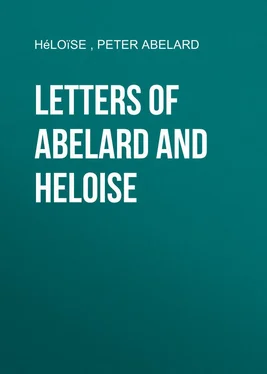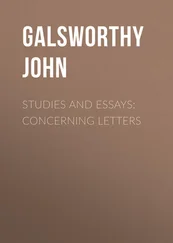Array Héloïse - Letters of Abelard and Heloise
Здесь есть возможность читать онлайн «Array Héloïse - Letters of Abelard and Heloise» — ознакомительный отрывок электронной книги совершенно бесплатно, а после прочтения отрывка купить полную версию. В некоторых случаях можно слушать аудио, скачать через торрент в формате fb2 и присутствует краткое содержание. Жанр: foreign_antique, foreign_prose, на английском языке. Описание произведения, (предисловие) а так же отзывы посетителей доступны на портале библиотеки ЛибКат.
- Название:Letters of Abelard and Heloise
- Автор:
- Жанр:
- Год:неизвестен
- ISBN:нет данных
- Рейтинг книги:3 / 5. Голосов: 1
-
Избранное:Добавить в избранное
- Отзывы:
-
Ваша оценка:
- 60
- 1
- 2
- 3
- 4
- 5
Letters of Abelard and Heloise: краткое содержание, описание и аннотация
Предлагаем к чтению аннотацию, описание, краткое содержание или предисловие (зависит от того, что написал сам автор книги «Letters of Abelard and Heloise»). Если вы не нашли необходимую информацию о книге — напишите в комментариях, мы постараемся отыскать её.
Letters of Abelard and Heloise — читать онлайн ознакомительный отрывок
Ниже представлен текст книги, разбитый по страницам. Система сохранения места последней прочитанной страницы, позволяет с удобством читать онлайн бесплатно книгу «Letters of Abelard and Heloise», без необходимости каждый раз заново искать на чём Вы остановились. Поставьте закладку, и сможете в любой момент перейти на страницу, на которой закончили чтение.
Интервал:
Закладка:
Foulques tells him besides, that the amputation of a part of his body, of which he made such ill use, would suppress at the same time a great many troublesome passions, and procure him liberty of reflecting on himself, instead of being hurried to and fro by his passions: his meditations would be no more interrupted by the emotions of the flesh, and therefore he would be more successful in discovering the secrets of Nature. He reckons it as a great advantage to him, that he would no more be the terror of husbands, and might now lodge any where without being suspected. And forgets not to acquaint him, that he might converse with the finest women without any fear of those temptations which sometimes overpower even age itself upon the sight of such objects. And, lastly, he would have the happiness of being exempt from the illusions of sleep; which exemption, according to him is a peculiar blessing.
It was with reason that Foulques reckons all these as advantages very extraordinary in the life of an ecclesiastick. It is easy to observe, that, to a person who devotes himself to continence, nothing can be more happy than to be insensible to beauty and love, for they who cannot maintain their chastity but by continual combats are very unhappy. The life of such persons is uneasy, their state always doubtful. They but too much feel the trouble of their warfare; and if they come off victorious in an engagement, it is often with a great many wounds. Even such of them as in a retired life are at the greatest distance from temptations, by continually struggling with their inclinations, setting barriers against the irruptions of the flesh, are in a miserable condition. Their entrenchments are often forced, and their conscience filled with sorrow and anxiety. What progress might one make in the ways of virtue, who is not obliged to fight an enemy for every foot of ground? Had Abelard's misfortune made him indeed such as Foulques supposed, we should see him in his Letters express his motives of comfort with a better grace. But though he now was in a condition not able to satisfy a passion by which he had suffered so much, yet was he not insensible at the sight of those objects which once gave him so much pleasure. This discourse therefore of Foulques, far from comforting Abelard in his affliction, seems capable of producing the contrary effect; and it is astonishing if Abelard did not take it so, and think he rather insulted him, and consequently resent it.
As to dreams, St. Austin informs us of the advantage Foulques tells his friend he had gained. St. Austin implores the grace of God to deliver him from this sort of weakness, and says, he gave consent to those things in his sleep which he should abominate awake, and laments exceedingly so great a regaining weakness.
But let us go on with this charitable friend's letter; it hath too near a relation to this to leave any part of it untouched. Matrimonial functions (continues Foulques) and the cares of a family, will not now hinder your application to please God. And what a happiness is it, not to be in a capacity of sinning? And then he brings the examples of Origen, and other martyrs, who rejoice now in heaven for their being upon earth in the condition Abelard laments; as if the impossibility of committing a sin could secure any one from desiring to do it. But one of the greatest motives of comfort, and one upon which he insists the most is, because his misfortune is irreparable. This is indeed true in fact, but the consequence of his reasoning is not so certain; Afflict not yourself (says he) because your misfortune is of such a nature as is never to be repaired.
It must be owned, that the general topics of consolation have two faces, and may therefore be considered very differently, even so as to seem arguments for sorrow. As for instance, one might argue very justly, that a mother should not yield too much to grief upon the loss of a son, because her tears are unavailable; and tho' she should kill herself with sorrow, she can never, by these means, bring her son to life. Yet this very thing, that all she can do is useless, is the main occasion of her grief; she could bear it patiently, could she any ways retrieve her loss. When Solon lamented the death of his son, and some friend, by way of comfort, told him his tears were insignificant. That , said he, is the very reason why I weep .
But Foulques argues much better afterwards; he says, Abelard did not suffer this in the commission of an ill act, but sleeping peaceably in his bed; that is he was not caught in any open fact, such has cost others the like loss. This is indeed a much better topic than the former, though it must be allowed that Abelard had drawn this misfortune on himself by a crime as bad as adultery; yet the fault was over, and he had made all the reparation in his power, and when they maimed him he thought no harm to any body.
Abelard's friend makes use likewise of other consolatory reasons in his Letter, and represents to him, after a very moving manner, the part which the Bishop and Canons, and all the Ecclesiasticks of Paris, took in his disgrace, and the mourning there was among the inhabitants and especially the women, upon this occasion. But, in this article of consolation, how comes it to pass that he makes no mention of Heloise ? This ought not to appear strange: she was the most injured, and therefore questionless, her sorrows were sufficiently known to him; and it would be no news to tell the husband that his wife was in the utmost affliction for him. For as we observed before, though she was in a convent, she had not renounced her husband, and those frequent visits he made her were not spent in reading homilies. But let us make an end of our reflections on Foulques's curious Letter, Foulques, after advising Abelard not to think of carrying the matter before the Pope, by assuring him that it required too great expence to obtain any satisfaction at that court, concludes all with this last motive of consolation, that the imagined happiness he had lost was always accompanied with abundance of vexation; but if he persevered in his spirit of resignation, he would, without doubt, at the last day obtain that justice he had now failed of. 'Tis great pity we have not Abelard's answer to this delicate Letter, the matter then would look like one of Job's Dialogues with his friends. Abelard would generally have enough to reply, and Foulques would often be but a sorry comforter. However, it is certain this Letter was of some weight with Abelard ; for we find afterwards he never thought of making a voyage to Rome. Resolved to hear his calamity patiently, he left to God the avenging of the cruel and shameful abuse he had suffered.
But let us return to Heloise . 'Tis probable her friends of the convent of Argenteuil concealed so heavy a misfortune from her for some time; but at last she heard the fatal news. Though the rage and fury of her uncle threatened her long since with some punishment, yet could she never suspect any thing of this nature. It will be saying too little to tell the reader she felt all the shame and sorrow that is possible. She only can express those violent emotions of her soul upon so severe an occasion.
In all probability this misfortune of Abelard would have been a thorough cure of her passion, if we might argue from like cases: but there is no rule so general as not to admit of some exceptions; and Heloise's love upon this severe trial proved like Queen Stratonice's, who was not less passionate for her favourite Combabus, when she discovered his impotence, than she had been before.
Shame and sorrow had not less seized Abelard than Heloise , nor dared he ever appear in the world; so that he resolved, immediately upon his cure, to banish himself from the sight of men, and hide himself in the darkness of a monastick life avoiding all conversation with any kind of persons excepting his dear Heloise , by whose company he endeavoured to comfort himself. But she at last resolved to follow his example, and continue forever in the convent of Argenteuil where she was. Abelard himself confesses, that shame rather than devotion had made him take the habit of a monk; and that it was jealousy more than love which engaged him to persuade Heloise to be professed before he had made his vow. The Letters which follow this history will inform us after what manner and with what resolution they separated. Heloise in the twenty-second year of her age generously quitted the world, and renounced all those pleasures she might reasonably have promised herself, to sacrifice herself entirely to the fidelity and obedience she owed her husband, and to procure him that ease of mind which he said he could no otherwise hope for.
Читать дальшеИнтервал:
Закладка:
Похожие книги на «Letters of Abelard and Heloise»
Представляем Вашему вниманию похожие книги на «Letters of Abelard and Heloise» списком для выбора. Мы отобрали схожую по названию и смыслу литературу в надежде предоставить читателям больше вариантов отыскать новые, интересные, ещё непрочитанные произведения.
Обсуждение, отзывы о книге «Letters of Abelard and Heloise» и просто собственные мнения читателей. Оставьте ваши комментарии, напишите, что Вы думаете о произведении, его смысле или главных героях. Укажите что конкретно понравилось, а что нет, и почему Вы так считаете.












